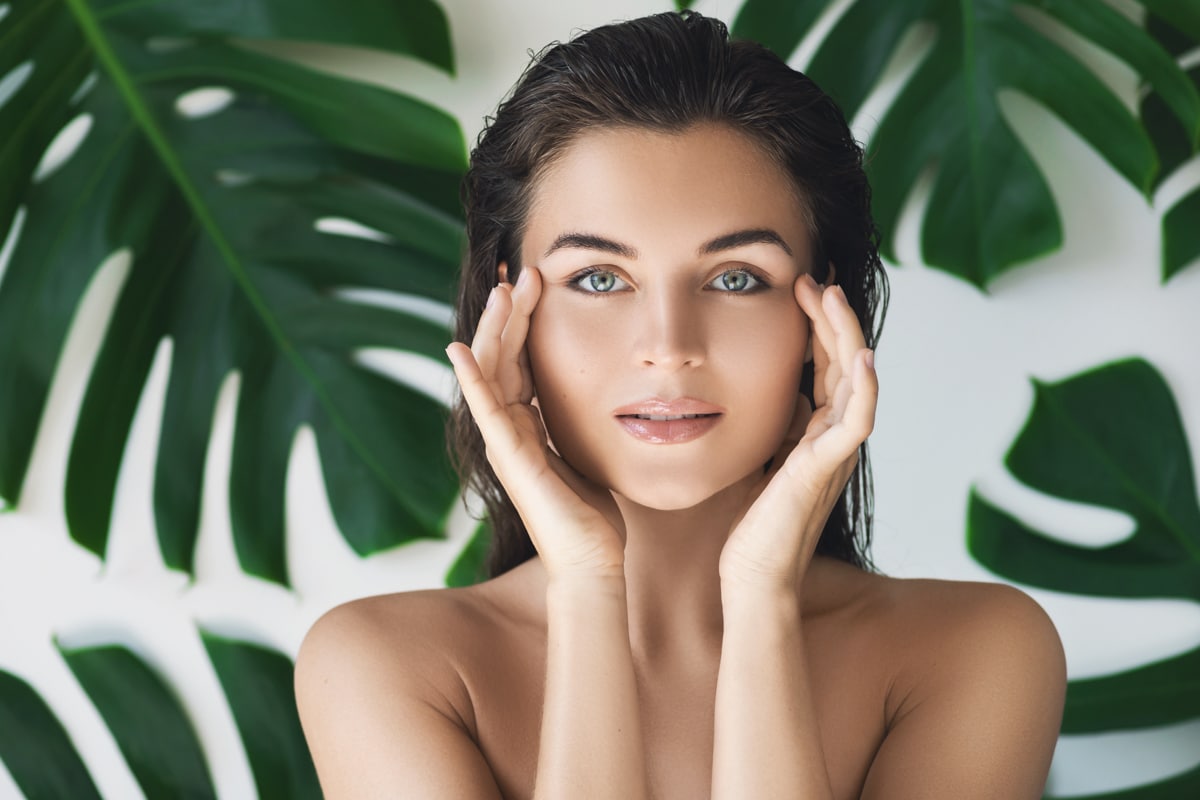Key Points
-
Vitamins and nutrients are critical components in the aging process.
-
Eat foods that are rich in antioxidants and boost collagen production to support healthy aging and youthful-looking skin.
-
Proper hydration is crucial for maintaining healthy skin and holistic health.
-
Making small dietary changes can have a lasting impact on your health, well-being, and appearance.
Is your diet making you age faster than you should? It might be. As you strive for optimal health and well-being, it's crucial to understand the importance of diet and nutrition in the aging process.
Explore the connection between the foods you eat and your appearance, overall health, and the rate at which your body ages. Learn how to incorporate key nutrients through antioxidant-rich and collagen-boosting foods and enhance hydration for better skin health and improved well-being.
Antioxidant-Rich Foods
Foods rich in antioxidant content have great potential for promoting good health and longevity and slowing aging. But what are antioxidants? Why are they important?
The key to understanding the importance of antioxidants in human health and longevity starts with understanding oxidation.
Free Radicals
Free radicals are unstable molecules that contribute to oxidative stress and damage living tissue, leading to premature aging. Oxidation, as it relates to biological systems like the human body, is a process in which oxygen reacts with living tissue to create free radicals.
Antioxidants counter free radical damage, helping neutralize, destroy, and remove them from the body. Besides premature aging, free radical damage has also been linked to various diseases and health issues.
Antioxidants work through an exchange of electrons with free radicals that neutralize them, thus reducing oxidative stress and promoting better health. In essence, antioxidants act as the body's defenders against the damaging effects of aging.
Lycopene
The antioxidant Lycopene has been associated with various health benefits, including reduced risk of heart disease and some cancers, and benefits skin health. Did you know that tomatoes are rich in lycopene?
Here's even better news: Cooked tomatoes have higher lycopene concentrations than raw ones. Processed foods like ketchup and canned tomatoes have high concentrations of this powerful antioxidant.
Author Olivia DeSmit, writing for Cosmetics Design, notes, "Lycopene, which contains carotenoids, acts as an antioxidant, among other functions, which can reduce the effects of aging on the skin."
Natural Sources
Incorporating antioxidant-rich foods into your daily meals is vital to harnessing the benefits of these powerful compounds. Natural sources include:
-
Berries (blueberries, strawberries, raspberries)
-
Tomatoes
-
Dark leafy greens (spinach, kale)
-
Nuts and seeds (walnuts, chia seeds)
-
Spices and herbs (turmeric, cinnamon, cloves)
-
Dark chocolate
Less-known sources of antioxidants include spirulina, a nutrient-dense blue-green alga high in antioxidants, and matcha, a type of green tea offering a concentrated dose of antioxidant-rich catechins.
Don't forget to incorporate beverages like green tea and red wine — in moderation, of course — to boost antioxidant consumption. Concentrating on these foods can increase the amount of daily antioxidants in your diet, potentially slowing the aging process.
Anti-Aging Benefits
Including antioxidants in your diet contributes to your body's natural defenses against aging. The benefits of antioxidants encompass various aspects, such as reducing the appearance of wrinkles, maintaining skin elasticity, and protecting the skin from harmful UV radiation.
Moreover, antioxidants may improve cardiovascular health and reduce the risk of chronic diseases like cancer and diabetes, leading to a healthier, longer life.
Collagen-Boosting Foods
Collagen is a crucial structural protein that contributes to the skin's strength, elasticity, and firmness. Foods that boost the body's natural collagen production can significantly enhance skin health.
Collagen and Skin Health
The body’s natural collagen production begins to decline as early as your mid-20s. It's important to incorporate collagen-boosting foods into your diet at a relatively young age. As you age, the body's natural production of collagen decreases, leading to the appearance of fine lines, wrinkles, and sagging skin. Collagen-boosting foods counter this slow-down, increasing your body's natural collagen production and potentially delaying the signs of aging.
Natural Sources
When you introduce collagen-boosting foods into your diet, you're not just giving a boost to your skin but also supporting your overall health and well-being. Start with these high-protein sources, which deliver amino acids that are essential for collagen synthesis:
-
Chicken
-
Fish
-
Lean beef
-
Eggs
-
Bone broth
Vitamin C-rich fruits and vegetables deliver an essential collagen building block. Sources include:
-
Oranges
-
Kiwis
-
Bell peppers
Zinc is another important building block in natural collagen production. Foods with high quantities of zinc include:
-
Chickpeas
-
Lentils
-
Pumpkin seeds
Increase the bioavailability of antioxidants by combining different food sources—for instance, pair vitamin C-rich berries with iron-rich spinach for improved absorption. Consider including fermented foods like kimchi and yogurt in your diet, as they support gut health and enhance nutrient absorption.
Additional Benefits
Emphasizing collagen-boosting foods not only aids in skin health but also supports overall well-being. These nutrient-dense foods contribute to a balanced and diverse diet, promoting optimal digestion and absorption of essential nutrients. Proteins, vitamins, and minerals all contribute to maintaining healthy bones, joints, and muscles, as well as supporting a strong immune system.
Hydration and Skin Health
Your skin is the largest single organ in your body. It's also your body's first line of defense against pathogens, pollutants, and other foreign substances that might otherwise cause Illness and disease inside your body. Anything you do to support skin health helps support whole-body health and well-being. Making sure you stay properly hydrated is a fundamental piece of maintaining healthy skin.
Proper hydration is essential for skin health. Dehydrated skin can appear dull and flaky, and it's also more vulnerable to premature aging. When you're dehydrated, your body conserves water, resulting in reduced blood flow and nutrients to the skin. Over time, this contributes to a lackluster appearance. Dehydration may also exacerbate existing skin conditions, such as eczema or acne.
Proper Hydration
To maintain healthy skin, you must consume sufficient amounts of water every day. The general guideline is to drink at least eight 8-ounce glasses of water per day. By the time you feel thirsty, you're probably already at least partially dehydrated. Individual hydration needs may vary depending on age, activity level, and climate.
Monitor your urine color as an indicator of your hydration status. Aim for pale yellow to clear colored urine, as this indicates a well-hydrated state. On the other hand, dark yellow urine means your body is short on water and has gone into conservation mode. When you see dark yellow urine, you're likely at least partially dehydrated, so it's important to consume water as soon as possible.
Aim to drink smaller amounts of water over a longer period of time as opposed to chugging large quantities at once. Drinking too much water in too short a time can be unhealthy and even dangerous. Consider this story of an Indiana woman who became dehydrated while boating on July 4, 2023. To help rehydrate, she consumed four bottles of water in roughly 30 minutes. This rapid water consumption leads to an untimely death due to hyponatremia, otherwise known as water toxicity.
Natural Sources
In addition to drinking water, look for natural sources of hydration to promote skin health. Many fruits and vegetables contain high water content, including:
-
Cucumbers
-
Watermelon
-
Strawberries
-
Oranges and Grapefruit
-
Blueberries
Incorporating these water-rich foods into your diet provides vital hydration and supplies essential vitamins and minerals that promote optimal well-being.
Maintaining a Balanced Diet
While consuming antioxidant-rich and collagen-boosting foods is generally beneficial for anti-aging, it’s essential to maintain a balanced diet. Overconsuming certain foods and nutrients can have multiple adverse health effects. For example, if you're too laser-focused on eating foods that support skin health and collagen production, you might not eat foods that contain different nutrients critical to other aspects of good health.
Certain vitamins and nutrients can be harmful if consumed too much. For example, consuming too much vitamin A can lead to vitamin A toxicity. Remember that moderation, variety, and balance are essential to good dietary habits.
Invest in Your Best
Understanding the role of diet and nutrition in anti-aging can guide you in making informed choices to support a healthier, youthful appearance. Eating a well-rounded, nutrient-rich diet is vital as part of a holistic approach to health and longevity.
Small dietary changes can impact your health, appearance, how you feel, and how well you age. Always seek expert guidance and continually educate yourself about nutrition to enhance your well-being at any age.
Subscribe to Age Defying for more ways to boost your health and longevity.



